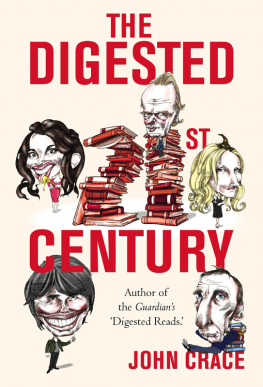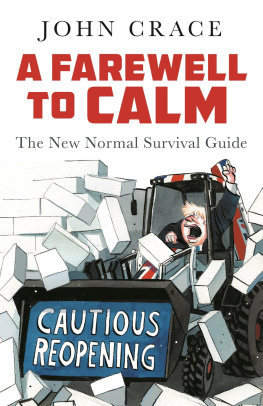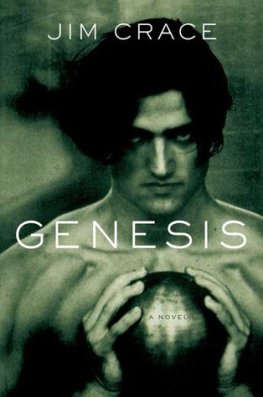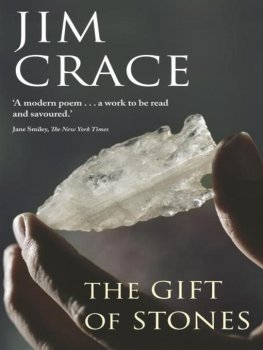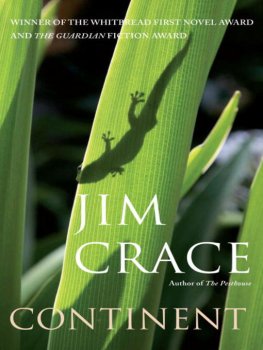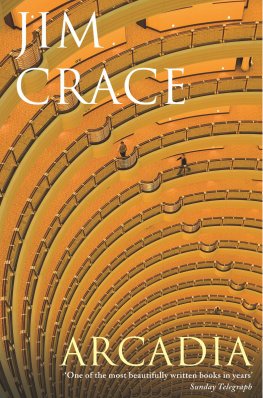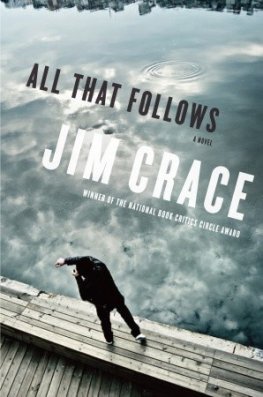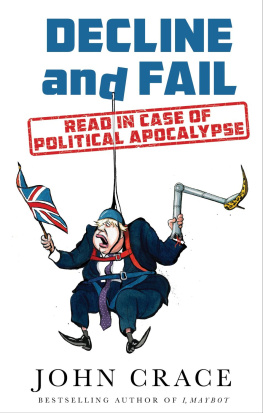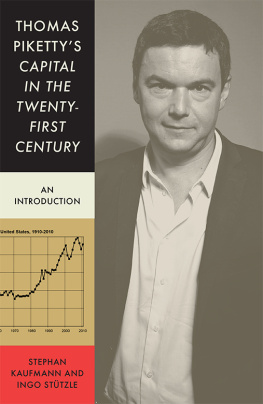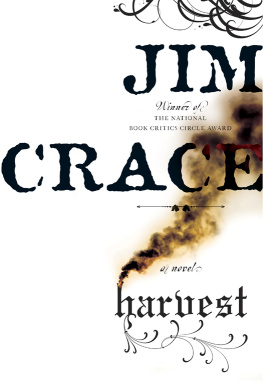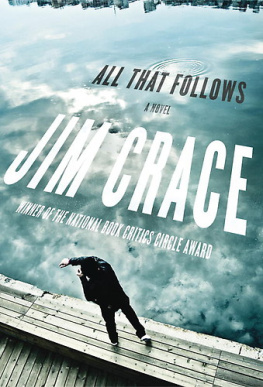THE DIGESTED
21st CENTURY
Also by John Crace
Vertigo: One Football Fans Fear of Success
Brideshead Abbreviated:
The Digested Read of the Twentieth Century
Baby Alarm: Thoughts from a Neurotic Father
Harrys Games: Inside the Mind of Harry Redknapp
THE DIGESTED
21st CENTURY
John Crace
CONSTABLE LONDON
Constable & Robinson Ltd
5556 Russell Square
London WC1B 4HP
www.constablerobinson.com
First published in the UK by Constable
an imprint of Constable & Robinson, 2014
Copyright John Crace 2014
All Digested Reads first published by the Guardian ( theguardian.com )
Guardian News & Media Ltd. and John Crace
The right of John Crace to be identified as the author of this work
has been asserted by him in accordance with the Copyright,
Designs & Patents Act 1988.
All rights reserved. This book is sold subject to the condition that it shall not, by way of trade or otherwise, be lent, re-sold, hired out or otherwise circulated in any form of binding or cover other than that in which it is published and without a similar condition including this condition being imposed on the subsequent purchaser.
A copy of the British Library Cataloguing in Publication Data is available from the British Library
ISBN: 978-1-78033-858-3 (hardback)
ISBN: 978-1-78033-908-5 (ebook)
1 3 5 7 9 10 8 6 4 2
Printed and bound in the EU
Cover by Simon Levy and Nicola Jennings
For John Sutherland, superprof
Contents
Public Enemies
Michel Houellebecq and Bernard Henri-Levy
Liberation, Volume 3: Diaries: 1970-1983
Christopher Isherwood
Here and Now: Letters 20082011
Paul Auster and JM Coetzee
Empire: How Britain Made the Modern World
Niall Ferguson
Introduction
Between the start of the twentieth century and the beginning of the First World War, L Frank Baum wrote The Wonderful Wizard of Oz, Colette wrote Claudine in Paris, Joseph Conrad wrote Heart of Darkness, Baronness Orczy wrote The Scarlet Pimpernel, EM Forster wrote Howards End, Thomas Mann wrote Death in Venice and Marcel Proust wrote Swanns Way. All these books have entered the literary canon and are still read today.
The Digested Read started life in early 2000 and has been running continuously in the Guardian ever since. Its premise is quite simple: to take the book that has been receiving the most media attention in any given week and rewrite it in about 700 words, retelling the story in the style of the author. However the emphasis is often on those aspects of the book that the author might prefer to have gone unnoticed: the clunky plot devices, fairytale psychology, poor dialogue, stylistic tics, unedited longueurs and the emperors new clothes.
Is the Digested Read parody, pastiche or satire? The distinctions frequently are blurred. It can be all three, depending on the book in question; but it is always meant to be entertaining, funny and informative. Literary reviewing has become more critically objective since I began writing the Digested Read, thanks mainly to the growth of literary blogs and below-the-line conversations on newspaper websites. But it is still relatively cosy compared to theatre, film and music reviewing.
The literary world is quite small: many reviewers are also authors. That can blur the critical boundaries; sometimes towards a hatchet job as old enemies settle scores, but mostly towards reviews that are rather more anodyne and favourable than they might otherwise have been. Who wants to make too many waves, when it might be your book being reviewed next? Some writers also seem to be given an inexplicably easier ride than others; almost as if the literary world has collectively decided that some authors are beyond adverse criticism.
For many authors, writing is a lifetimes career. And like most careers, it has its ups and downs. An author might well follow one great book with a couple of duds before finding their touch again; not least because when a writer becomes a bestseller, their publisher often finds it trickier to suggest useful edits. Publishing is a business; no one would dream of marketing a book with the catchline: Not as good as her last book, but bear with her because she will come good again in a few years time. Every book by an established author is sold as if the career progression were on a relentless upward curve.
While the Digested Read does have fun fairly, and yes, sometimes unfairly at the authors expense, it is also intended as a corrective to the publishing industry itself: the disparity between the hype with which the publisher is promoting the book and the reality to which it can seldom live up. Which brings me back to where I started. This collection of the best or worst, depending on your point of view Digested Reads from the last 14 years are all books that publishers believed were important. They are the books that came with the big marketing budgets and promotional tours. They are the ones publishers expected to reach the bestseller lists. In some cases they are the books publishers hoped might still be read in a hundred years time. So, which of these books will be the Howards End or Swanns Way of 2114? You tell me.
SERIOUS FICTION
The Laying on of Hands
by Alan Bennett (2001)
Anyone looking around the congregation and its celebrity assortment might have imagined that Clive had been a sociable creature. But the gathering owed more to Clives discretion than his friendships, and many household names had been mildly irked on entering the church to discover they were not the sole centre of attention.
Clive had died in Peru and, when a young man dies in unknown circumstances of an unknown disease, the question, What did he die of? often assumes a personal dimension for those who remain. Father Geoffrey Joliffe, who was about to take the service, was no exception.
By profession, Clive had been a masseur, but he had interpreted the word generously, and although Geoffrey had little reason for anxiety his guilt had kept their encounters to minimal bodily contact his confusion of God with Joan Crawford often was enough to inspire alarm.
As the service neared its conclusion, Father Joliffe had some regrets. Much had been spoken of Clives charms, but nothing that he felt truly captured the essence of the Clive he had known.
If anyone has any further reminiscences they would like to share, they are invited to do so now, he improvised. Various people stood up to extend their thoughts, before Carl stepped forward. I would like to tell you what Clive was like in bed, he began.
I didnt know he was gay, chorused several women.
And when someone that young dies of Aids, its time for anger as well as grief, Carl continued. The mention of the word that mustnt be mentioned caused a frisson.
He didnt die of Aids, said a young man, named Hopkins. I was with him in Peru. He was bitten by an insect.
They all say that, snarled Carl.
Im his doctor, ventured a smartly-dressed man. His latest blood test was negative.
As the congregation peeled away, their hearts were considerably lighter than when they entered. Hopkins approached Geoffrey. I have Clives diary, he said. Seeing his initials against several dates, Geoffrey laid his hands on Hopkins knees. Ill take care of that, he whispered as Hopkins bolted for the door.
Some weeks later there was a knock on the vestry door.
I thought, why not? said Hopkins.
Digested read, digested: The Little Book of Revelations.

